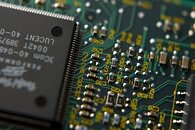Thockfactory 2.0 Re-Emerges As Updated Keycap Customisation Service for Mechanical Keyboard Enthusiasts
Thockfactory was a service that let users design and order custom keycap sets for mechanical keyboards, originally starting out as an enthusiast project in 2023. Despite officially launching in 2024, the service was shut down shortly after launch due to keycap quality issues and UI frustrations. Now, after examining user feedback, taking time to locate a new keycap supplier, and redesigning the online keycap configurator, Thockfactory 2.0 has been launched with a slew of upgrades and a laundry list of plans for the future of the business, according to the founder's Reddit post detailing the relaunch.
Thockfactory keycaps are all dye-sublimated PBT, meaning they won't offer shine-through capability, but they should last a good long while, thanks to the material's oil resistance. At the time of writing, Thockfactory only offers keycaps in Cherry profile, although uniform height and low-profile keycaps are planned for the future, with DSA and XDA profiles specifically mentioned as likely incoming additions. The configurator also offers pretty wide compatibility with a number of standard and not-so-standard layouts, including 100%, TKL, Alice, and 65%, which is always a hit with FPS gamers. In addition to the usual suspects, Thockfactory also offers support for stranger layouts, like unorthodox 40% keyboards, a number of ortholinear layouts, and FRL (F-row-less) options. The configurator also allows you to switch between ISO and ANSI, and there are a number of regional and language variants on offer. According to a Reddit comment by the company's founder, the keycaps are being manufactured by a trustworthy OEM that has a solid track record in the custom keycap space. According to the founder, the main draw of Thockfactory is that it offers more color options and greater flexibility than competitors.
Thockfactory keycaps are all dye-sublimated PBT, meaning they won't offer shine-through capability, but they should last a good long while, thanks to the material's oil resistance. At the time of writing, Thockfactory only offers keycaps in Cherry profile, although uniform height and low-profile keycaps are planned for the future, with DSA and XDA profiles specifically mentioned as likely incoming additions. The configurator also offers pretty wide compatibility with a number of standard and not-so-standard layouts, including 100%, TKL, Alice, and 65%, which is always a hit with FPS gamers. In addition to the usual suspects, Thockfactory also offers support for stranger layouts, like unorthodox 40% keyboards, a number of ortholinear layouts, and FRL (F-row-less) options. The configurator also allows you to switch between ISO and ANSI, and there are a number of regional and language variants on offer. According to a Reddit comment by the company's founder, the keycaps are being manufactured by a trustworthy OEM that has a solid track record in the custom keycap space. According to the founder, the main draw of Thockfactory is that it offers more color options and greater flexibility than competitors.










































































